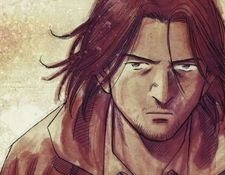|
If you liked
20th Century Boys
|
...then you might like
Steins;Gate
|
Both 20th Century Boys and Steins;Gate are Japanese science fiction thrillers that deal with complex time travel concepts and their far-reaching consequences. While they differ in narrative style and tone, several intriguing similarities bind them: 1. Butterfly effect and consequences of altering the past: Both stories heavily explore the butterfly effect, where seemingly minor changes in the past can have drastic and unpredictable consequences in the future. 20th Century Boys focuses on how a group of childhood friends' actions unintentionally trigger a catastrophic future. Steins;Gate revolves around Okabe Rintarou accidentally sending a text message to the past, creating alternate timelines and causing unforeseen chaos. The stories delve into the ethical dilemmas and risks associated with time travel. Both protagonists grapple with the guilt and responsibility of manipulating the past and struggle to rectify the unintended consequences of their actions. 2. Conspiracy and cryptic messages: Both narratives involve mysterious conspiracies and cryptic messages that hint at hidden truths and future events. 20th Century Boys features a shadowy organization manipulating society based on a predicted apocalypse, leaving clues and symbols throughout the story. Steins;Gate features SERN, a shadowy organization researching time travel, which Okabe must uncover and oppose to prevent dystopian futures. Unraveling these conspiracies and deciphering cryptic messages is a central driving force in both stories. The protagonists face constant danger and deception as they piece together the puzzles and struggle to understand the forces at play. 3. Themes of friendship and sacrifice: Both stories emphasize the importance of friendship and the lengths people will go to protect their loved ones. 20th Century Boys revolves around a group of childhood friends reuniting and sacrificing everything to stop the predicted apocalypse. Steins;Gate features Okabe's desperate attempts to save his friends and fix the timeline, even if it means making difficult choices and facing devastating consequences. 4. Genre blending and emotional depth: Both 20th Century Boys and Steins;Gate seamlessly blend genres, incorporating elements of science fiction, thriller, mystery, and drama. This creates a diverse and engaging narrative experience that keeps viewers on the edge of their seats. The stories resonate emotionally. Both protagonists experience loss, regret, and the burden of responsibility, making their journeys relatable and impactful. Despite their contrasting tones and stylistic choices, both 20th Century Boys and Steins;Gate offer captivating explorations of time travel, its profound consequences, and the complex human emotions intertwined with such a powerful concept.
|
If you liked
Monster
|
...then you might like
Death Note
|
Both Monster and Death Note are psychological thrillers that explore dark themes. Their similarities include: Genius protagonists with god complexes: Light (Death Note) uses a notebook to kill those he deems unworthy, while Tenma (Monster) grapples with a monster he unleashed due to a medical choice. Both blur the lines between hero and villain. Complex cat-and-mouse games: L (Death Note) hunts Kira (Light's alias), while Tenma chases the enigmatic Johan. Their intellectual clashes create suspense and raise moral questions. Exploration of good and evil: Both series delve into the potential for good intentions to lead to darkness and the existence of evil without motive. Psychological depth and suspense: The stories explore inner turmoil and dark settings, leaving viewers questioning the boundaries of human nature. Despite their differences in genre and supernatural elements, these shared traits make both Monster and Death Note captivating explorations of the complexities of morality and the darkness within.
|
If you liked
Bleach
|
...then you might like
Shingeki no Kyojin
|
Both Bleach and Attack on Titan are popular anime series that have captivated audiences with their thrilling action, intriguing mysteries, and complex characters. While they differ in genre and tone, there are some interesting similarities between the two: Monstrous Threats: Hollows vs. Titans: Both series feature monstrous threats that pose a significant danger to humanity. In Bleach, Hollows are corrupted spirits that consume souls, while Attack on Titan features the monstrous Titans that devour humans. Both types of creatures are formidable opponents that require specialized skills and strategies to defeat. Protagonists Driven by Revenge: Ichigo Kurosaki and Eren Yeager: Both Ichigo and Eren are driven by a strong desire for revenge. Ichigo seeks vengeance for his mother's death at the hands of a Hollow, while Eren vows to eradicate all Titans after witnessing his mother's brutal demise. This initial motivation fuels their determination and shapes their actions throughout the stories. Hidden Powers and Transformations: Zanpakuto and Titan Shifting: Both series feature protagonists who unlock hidden powers and undergo transformations. In Bleach, Ichigo wields a Zanpakuto, a powerful sword that manifests his Shinigami abilities. Eren, on the other hand, possesses the ability to transform into a Titan himself, granting him immense strength and regeneration. These transformations play a crucial role in the characters' battles and development. Themes of Loss and Morality: Loss and Sacrifice: Both Bleach and Attack on Titan deal with the heavy themes of loss and sacrifice. Characters face the loss of loved ones, forcing them to confront grief and grapple with the consequences of their choices. The series explore the moral complexities of fighting for survival in a world where violence is often necessary. While Bleach leans more towards supernatural fantasy with its Shinigami and Hollows, and Attack on Titan takes a darker, more grounded approach with its Titans and political intrigue, both series share compelling narratives about overcoming challenges, facing inner demons, and the enduring human spirit in the face of adversity.






